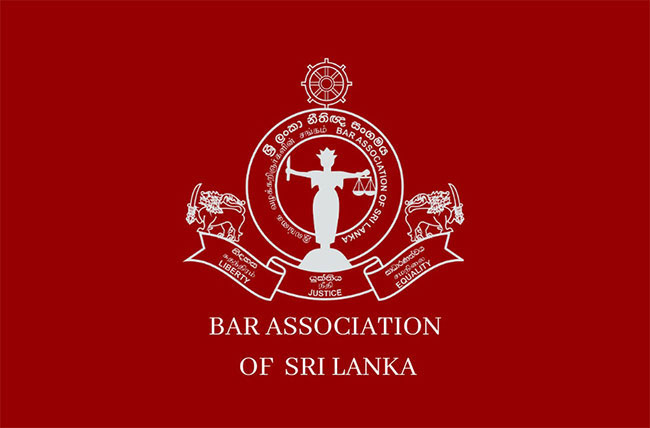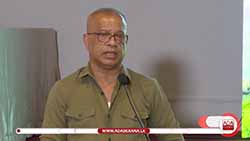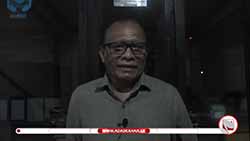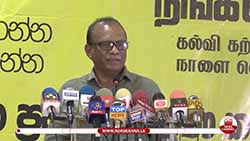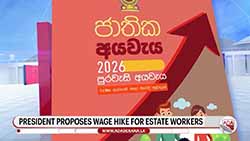21A regrettably does not completely restore the status quo ante - BASL
October 27, 2022 04:00 pm
The Bar Association of Sri Lanka (BASL) says that the 21st Amendment to the Constitution regrettably does not completely restore the status quo ante which prevailed prior to the 20th Amendment to the Constitution and does not place adequate checks and balances on the powers of the Executive President.
The BASL notes that on the 21st of October 2022, Parliament approved the enactment of the 22nd Amendment to the Constitution, which has now been renamed as the 21st Amendment to the Constitution.
The Bill approved by Parliament was by and large that which was presented in Parliament on 10th August 2022 and published in the Gazette on 2nd August 2022 by the Government, subject to certain changes at the Committee Stage mainly to bring it in line with the determination of the Supreme Court.
The necessity to amend the Constitution arose as a result of the public outcry that sprung up throughout the country in response to the present economic crisis, it said.
The association said it has been perceived that the causes of the crisis include the lack of checks and balances on the powers of the Executive including the Executive Presidency and that the 20th Amendment to the Constitution rolled back the checks and balances which were introduced by the 19th Amendment on the exercise of executive power.
“The 21st Amendment to the Constitution regrettably does not completely restore the status quo ante which prevailed prior to the 20th Amendment to the Constitution and does not place adequate checks and balances on the powers of the Executive President.”
The BASL in its previous statements on the 22nd Amendment Bill highlighted the shortcomings of the Bill and of the danger that the nominations of a majority of members to the Constitutional Council will be controlled by the party or parties in the Government, resulting in it lacking independence and consequently affect the independence and integrity of the offices and institutions to which appointments will be made through the Constitutional Council.
“Nevertheless, now that the 21st amendment is enacted into law, it is essential that the Constitutional Council which is to be appointed thereunder and the Independent Commissions which will be reconstituted thereafter, be independent, impartial and be institutions which will help restore confidence in Sri Lanka and its Institutions,” the BASL said.
As such the Bar Association of Sri Lanka (BASL) called upon the President, Prime Minister, the Speaker, the Leader of the Opposition, and all political parties represented in Parliament, to firstly ensure the integrity of nominations to the Constitutional Council and to ensure that such nominations are devoid of partisanship and in a manner that will inspire public confidence.
For this purpose, it is important to ensure that the non-ex-officio members of the Constitutional Council appointed from among Members of Parliament and from among non-Members of Parliament be done in a transparent and open manner and to also ensure that those appointed will be acceptable to the members of the public and be persons of the highest integrity and reputation, it said.
After the Constitutional Council is established, it should thereafter adopt a transparent, open, and inclusive process by which it nominates Chairpersons and members of Independent Commissions and other institutions established by the Constitution and other laws, the BASL added.
It is also noted that upon the enactment of the 21st Amendment, the Chairpersons and members of Independent Commissions will cease to hold office upon these Commissions being reconstituted. In doing so it is imperative that those appointed to the Election Commission, the Public Service Commission, the National Police Commission, the Human Rights Commission of Sri Lanka, the Commission to Investigate Allegations of Bribery or Corruption, the Finance Commission and the Delimitation Commission be persons who have not only the requisite qualifications and abilities but also be those whose appointments receive wide acceptance.
“It is equally important to ensure that the enactment of the 21st Amendment must not be used as an excuse or mechanism to discontinue Chairpersons and members of Commissions whose services helped establish public faith in such Institutions.”
It is also vital for the Government to make provisions for the Commissions to have financial independence and that these Commissions adopt procedures that promote accountability and transparency in their work, the bar association said.
“Any failure of the 21st Amendment to address the issue of creating strong independent institutions in Sri Lanka will also have a bearing on future law reform initiatives, such as the proposed composite Anti-Corruption law, and will have an adverse impact on the Rule of Law in Sri Lanka.”



